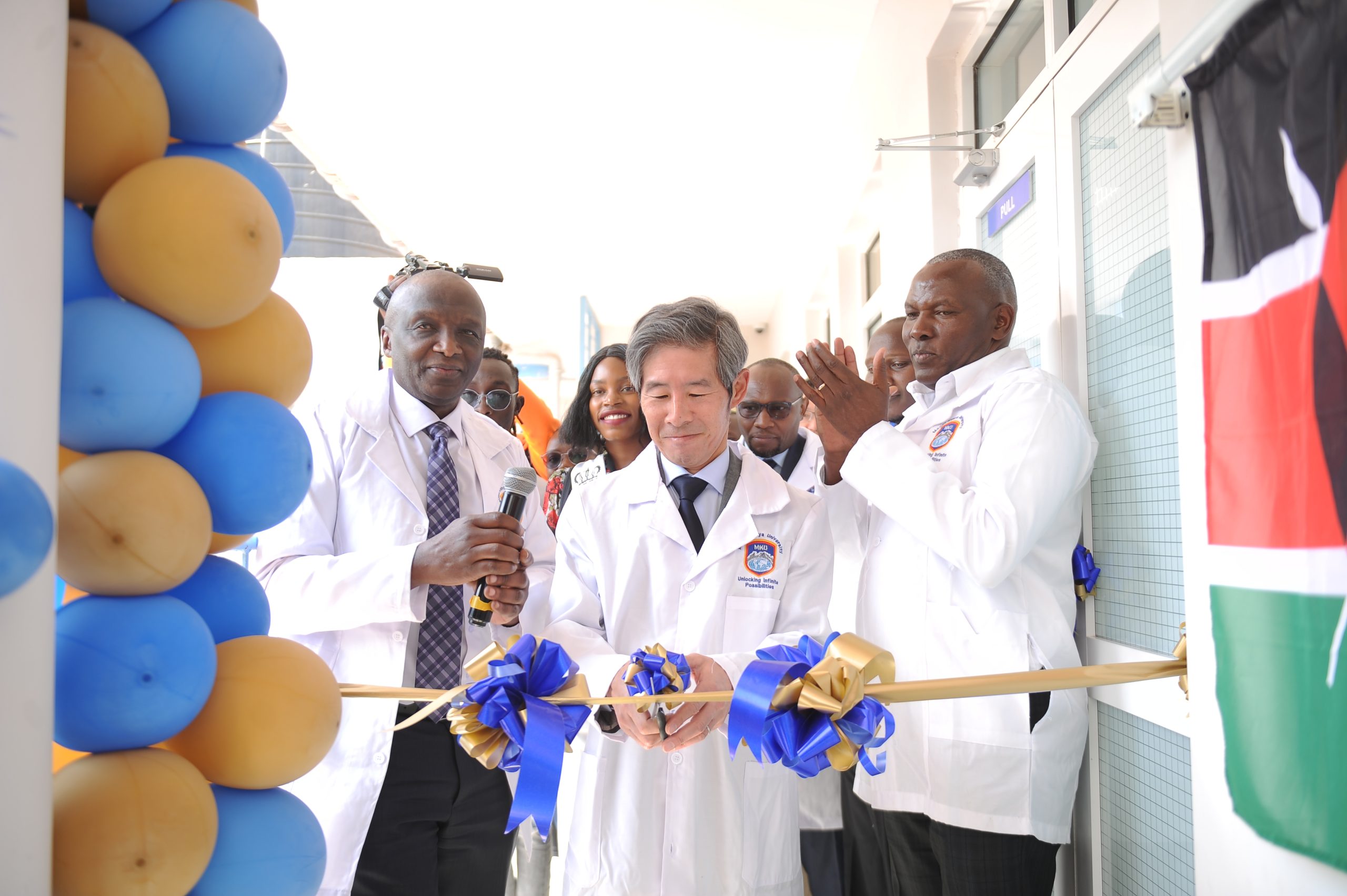The Japanese government in partnership with the Ministries of Education and Health here in Kenya has inaugurated a malaria research laboratory at Mount Kenya University.
The state-of-the-art laboratory will be constructed at the University’s main campus in Thika town.
The new lab at MKU is being funded by the government of Japan, Japan’s ambassador to Kenya Okaniwa Ken said in Thika on Friday.
The total project cost is approximately Sh450 million, with Sh300 million allocated for activities in Kenya and Sh150 million for activities in Japan.
The Centre for Malaria Elimination at MKU is part of the Project for Interdisciplinary Research for Integrated Community-Directed Strategy for Sustainable Freedom from Malaria.
The project is being implemented in collaboration with Osaka City University and other universities of Japan.
Other implementers include the Homa Bay County government, the Kenya national government’s ministries of health and education as well as the Japan International Cooperation Agency (JICA).
The project aims at evaluating an integrated community-directed strategy for malaria elimination in western Kenya and has achieved significant milestones in the fight against the disease.
Already, a cutting-edge molecular and immunology laboratory has been established at MKU’s Thika campus.
The facility enables advanced research and diagnostics for malaria.
Researchers and students from the collaborating institution have also benefited from exchange training programs, enhancing their skills and knowledge in malaria research.
The envoy said he had visited the project site in Homa Bay County and regretted the fact that malaria has been so devastating a disease in Africa.
“I have been briefed about the challenges facing the people of that region from the malaria disease,” he said.
“It is disheartening to know that there continue to be so many people suffering from malaria. It is a complete waste of human resources and human lives”. Mr. Okanawa added
The ambassador said malaria has been a persistent threat to residents of the Nyanza region and many regions of Kenya.
MKU vice-chancellor Prof. Deogratius Jaganyi said the inauguration of the Centre was a testimony of the university’s unwavering commitment to combating one of the world’s most persistent and devastating tropical diseases.
He noted that Malaria remains a formidable global health challenge, disproportionately affecting the most vulnerable members of the society, particularly children and pregnant women.
“It ravages communities, undermines economic development, and perpetuates a cycle of poverty that we must break.
The burden of this disease is not only a health concern but also a social injustice that demands our joint attention and action for eradication,” he said
The VC said MKU has always been at the forefront of addressing societal needs and uplifting communities. “Today, we reaffirm our commitment to advancing scientific knowledge, fostering innovation, and working hand in hand with local communities and global partners to achieve a malaria-free future,” he added.
By James Wakahiu
Get more stories from our website: Education News
You can also follow our social media pages on Twitter: Education News KE and Facebook: Education News Newspaper for timely updates.






